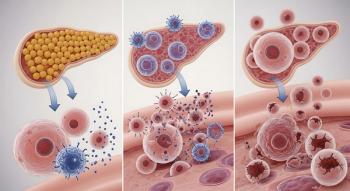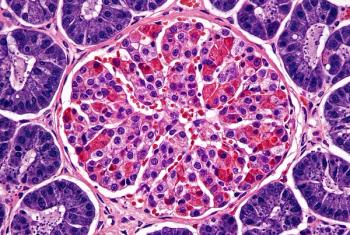
Type 1 Diabetes Drug Tzield Under Expedited Review Through New FDA Program
Tzield, a monoclonal antibody approved for stage 2 Type 1 diabetes, now seeks approval for stage 3 disease based on trial data showing that it slowed beta cell loss in children and adolescents.
The FDA has accepted for expedited review Sanofi’s supplemental biologics license application for Tzield (teplizumab-mzwv) to delay the progression of stage 3 Type 1 diabetes (T1D) in recently diagnosed adults and pediatric patients eight years of age or older. Stage 3, also known as the clinical stage of the disease, is typically when a diagnosis is made after people start showing symptoms.
Type 1 diabetes is a disease where the immune system destroys insulin-producing beta cells in pancreatic islets. About 2 million Americans have Type 1 diabetes. Tzield is a CD3-directed monoclonal antibody that was approved in 2022 as a therapy for adults and children eight years of age and older with stage 2 Type 1 diabetes to delay progression to stage 3. Stage 2, also called presymptomatic disease, is when blood sugar is abnormal and patients have two or more diabetes-related autoantibodies.
The expedited review is part of the recently announced
The sBLA for Tzield is supported by the results from the PROTECT phase 3 study, which were
In the study, Tzield was able to slow the loss of beta cells and preserve beta cell function as measured by C-peptide in children and adolescents aged 8 to 17 years diagnosed in the preceding six weeks with stage 3 autoimmune Type 1 diabetes. C-peptide is a biomarker for beta cell function.
Although the study’s key secondary endpoints did not meet statistical significance, numerical trends favoring Tzield were seen in relevant clinical parameters, including the need for fewer insulin units and a higher in-range.
“These new results build on the findings from multiple studies across different stages of the disease process, further supporting Tzield’s potential to modulate the progression of T1D,” Kevan Herold, M.D., C.N.H. Long Professor of Immunobiology and of Medicine (Endocrinology), Yale School of Medicine and Primary Investigator of PROTECT, said in a
Safety was consistent with previous data, and adverse events include headache, nausea, rash, lymphopenia, leukopenia, and gastrointestinal symptoms. The most common serious adverse event was cytokine release syndrome. In PROTECT, 1.8% of those who received Tzield developed cytokine release syndrome possibly or probably related to Tzield.
An observational extension study following patients for another 42 months is ongoing, Sanofi said.
Tzield’s sBLA is also being reviewed under the
Sanofi officials said a phase 3 confirmatory trial, the BETA-PRESERVE study, was recently initiated and is currently enrolling patients.
Newsletter
Get the latest industry news, event updates, and more from Managed healthcare Executive.

























